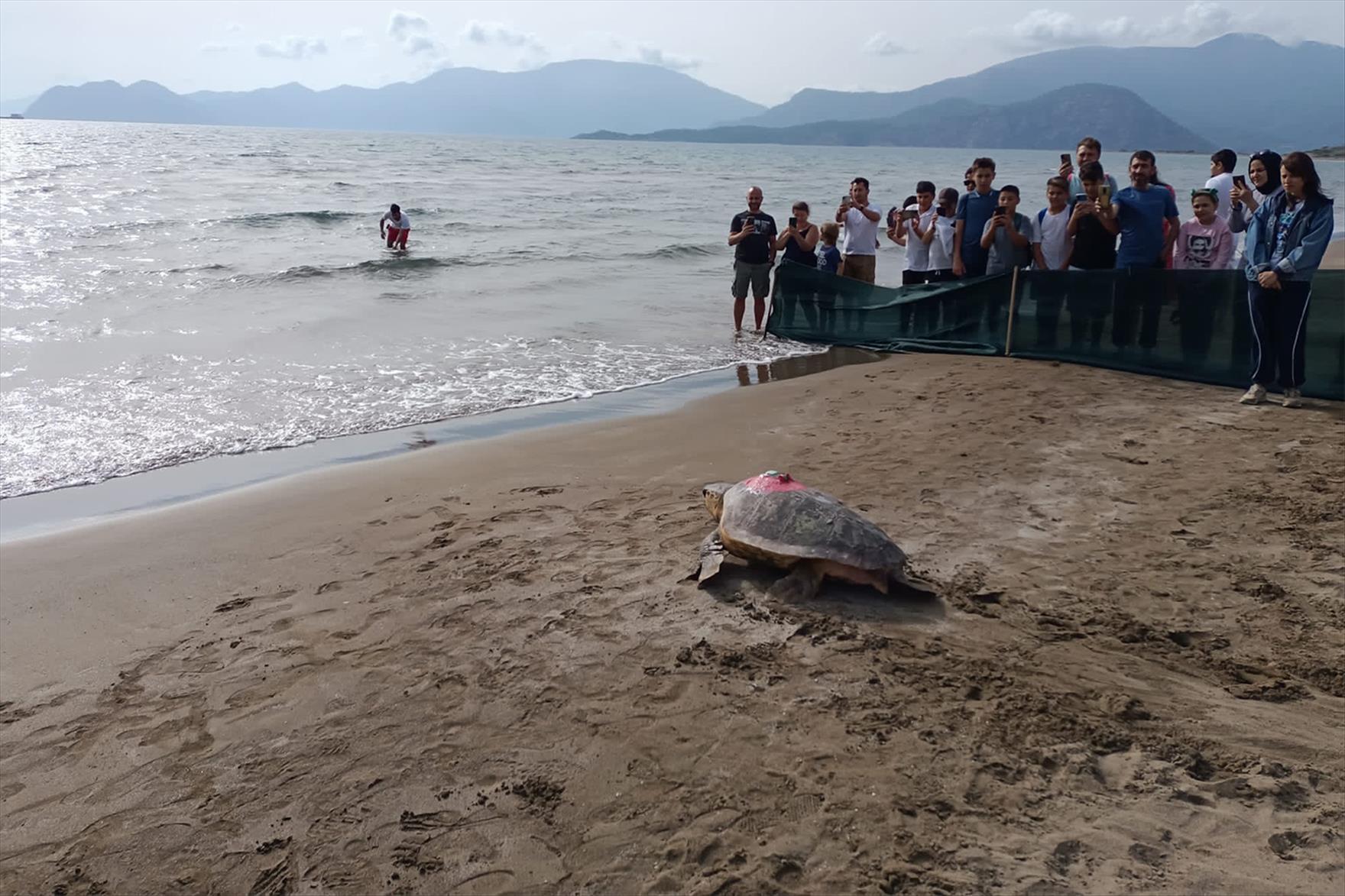First Device with Solar Panels Installed on 'Turkey 100' Sea Turtle
24.05.2023
For the first time in Pamukkale University Sea Turtle Research and Application Center (DEKAMER), which continues its activities in the Ortaca district of Muğla, a satellite tracking device with solar panels was attached to the sea turtle named 'Turkey 100' and released into the sea.

A 58-63 year-old female sea turtle, named 'Turkey 100' for the 100th anniversary of the Republic, was reunited with the sea by DEKAMER officials by attaching a solar-powered satellite tracking device after laying eggs on Iztuzu beach in Muğla's Ortaca district.
'Turkey 100's journey in the sea will be tracked thanks to the satellite tracking device
Making a statement on the subject, DEKAMER Director and PAU faculty member Prof. Dr. Yakup Kaska stated the following: "Satellite tracking devices, which are installed to monitor the natural lives of sea turtles, send a signal when the turtles surface for air, allowing their whereabouts to be determined. With different devices, we can track where the sea turtles go, how often they breathe and where they winter. The device we attach to the loggerhead has a solar panel inside. When the battery runs out, it can be recharged. We developed this device within the framework of the EU-funded LifeMedTurtles Project (https://medturtles.eu/), which aims to monitor and protect two priority sea turtle species: the loggerhead sea turtle Caretta caretta and the green sea turtle Chelonia mydas. In the coming days, we will be able to obtain the information that these turtles come back here to nest and where they migrate to after the nests. The most important connection in our studies so far is Tunisia and the Gulf of Gabes in Tunisia. We had turtles going to this bay the most. One group was going to Egypt and another group was going to Syria. However, our famous turtle named 'Tuba' went to the Adriatic Sea. Therefore, those who stayed in the Aegean Sea, those who went to Tunisia, Egypt, those who went to the Far East like Syria, and those who went to the Adriatic Sea constitute another group. As DEKAMER, we continue to carry out detailed studies such as the differences in the genetic structures of turtles traveling in these different environments and the differences in their food content."
'Turkey 100's journey in the sea will be tracked thanks to the satellite tracking device
Making a statement on the subject, DEKAMER Director and PAU faculty member Prof. Dr. Yakup Kaska stated the following: "Satellite tracking devices, which are installed to monitor the natural lives of sea turtles, send a signal when the turtles surface for air, allowing their whereabouts to be determined. With different devices, we can track where the sea turtles go, how often they breathe and where they winter. The device we attach to the loggerhead has a solar panel inside. When the battery runs out, it can be recharged. We developed this device within the framework of the EU-funded LifeMedTurtles Project (https://medturtles.eu/), which aims to monitor and protect two priority sea turtle species: the loggerhead sea turtle Caretta caretta and the green sea turtle Chelonia mydas. In the coming days, we will be able to obtain the information that these turtles come back here to nest and where they migrate to after the nests. The most important connection in our studies so far is Tunisia and the Gulf of Gabes in Tunisia. We had turtles going to this bay the most. One group was going to Egypt and another group was going to Syria. However, our famous turtle named 'Tuba' went to the Adriatic Sea. Therefore, those who stayed in the Aegean Sea, those who went to Tunisia, Egypt, those who went to the Far East like Syria, and those who went to the Adriatic Sea constitute another group. As DEKAMER, we continue to carry out detailed studies such as the differences in the genetic structures of turtles traveling in these different environments and the differences in their food content."
